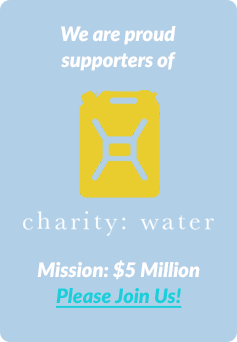While I’ve always been fascinated by the way in which a mere 26 letters can turn a blank page into a story, it’s only lately that I’ve begun to truly appreciate the power of words.
With our words, we have the ability to either build or destroy people, countries, and causes.
We can choose words that inspire or words that instil fear; words that encourage or words that discourage; words that empower or words that inflict pain; so whether we realise it or not, we have a responsibility to carefully consider the words we choose in our day-to-day interactions with others.
But we have an even bigger responsibility to carefully consider the words we choose in our day-to-day dialogue with ourselves.
“Words are energy.”
It’s a term I heard recently although I didn’t really get its true meaning at the time. What I did know for sure was that, according to quantum physics, all matter is made up of energy. Rocks, chairs, humans… the fact of the matter (pun intended) is that everything is energy vibrating at different frequencies.
How, then, did the idea that words are energy fit into the bigger picture of quantum physics? I was intrigued.
So I’ve been experimenting. By paying attention to my choice of words, I’ve noticed that some words just make me feel better than others. And on busy days, it’s almost as soothing as being on the beach at sunset.
I think therein lies the link between better-feeling words and quantum physics: because the better we feel, the higher the frequency at which we vibrate. The higher the frequency at which we vibrate, the more we attract better-feeling situations. It’s a win-win situation!
Here are some of the words that allow me to view life in a more calming way. Feel free to say it out loud and see if it has the same effect on you.
- “Observing” vs. “judging”:
My pet peeve is someone judging my behaviour by their standards, so I feel really guilty when I’m the one judging someone based on the way they behave.
In my mind, thinking that they’re selfish, nasty, arrogant, opinionated, or rude is me judging them.
Fortunately, a trusted spiritual guru – bless her soul – advised me that it simply isn’t so! While I’m observing someone’s behaviour based on my own perceptions of life, it’s just that: an observation. It becomes a judgement when I decide that they’re bad people because of it.
In other words, I can observe that someone’s behaving badly. Drawing the conclusion that they’re bad simply because they’re behaving badly… that’s judgement.
- “Appreciation” vs. “gratitude”:
Although we use these words interchangeably, it’s been brought to my attention that the word “gratitude” is often associated with having to overcome a struggle or a situation of lack. So, when we express our gratitude, there’s an underlying reminder of an unpleasant situation.
“Appreciation,” on the other hand, is an acknowledgement that all is good. It’s just an easier word for describing the same thing. Try it.
Are you grateful for money in the bank or do you appreciate that you have money in the bank? Are you grateful for family and friends or do you appreciate your family and friends? Are you grateful for the opportunities that life brings your way or do you appreciate the opportunities that life brings your way?
- “I can do this” vs. “I’ve done this many times before”:
Usually a motivation when I’m about to do something challenging, “I can do this” becomes more of a platitude when I’m still trying after numerous times. When I haven’t come to any real solutions, telling myself that I can figure it out leaves me feeling more frustrated than inspired.
When I say, “I’ve done this many times before,” it’s a fact, because I’ve overcome challenges in various ways, shapes, and forms. There’s proof, so it gives me comfort knowing I can tackle any challenge with confidence because I’ve succeeded many times before. I feel like I have it waxed even before I’ve begun.
- “Allow” vs. “achieve”:
The idea that we allow well-being – whether financial, health, or relationships – to flow naturally into our lives is way more empowering than the idea that well-being is an achievement for a select few who do it right. Just this simple approach to life, love, and everything else inspires me. Thinking that I have to work for it? Sigh…
- “Stand up for” vs. “Fight for”:
Say these words out loud (or whisper them if you’re around people): “I stand up for what I believe.” How does that make you feel?
Now say: “I fight for what I believe.” How does that make you feel?
While they basically mean the same thing, do you notice that it makes you feel different when you say it out loud? Standing up for what you believe implies confidence. It’s yours, you own it. No contradicting vibrations here.
On the other hand, fighting for what you believe implies a tug-o-war for something that may or may not already be yours. There’s uncertainty, challenge, hostility, and a bunch of negative vibrations that are certain to bring you more. Why choose the negative?
The better-feeling word test has quickly become an integral part of my day. Subtly, silently, simply it calms my spirit and allows better-feeling thoughts to flow.








